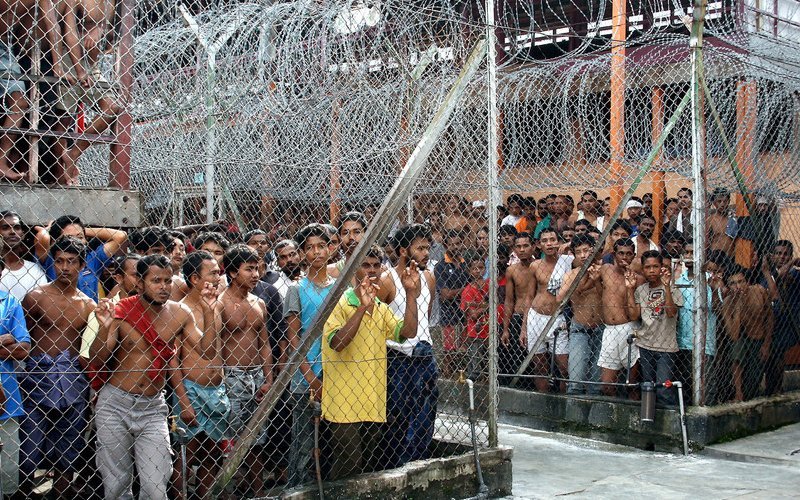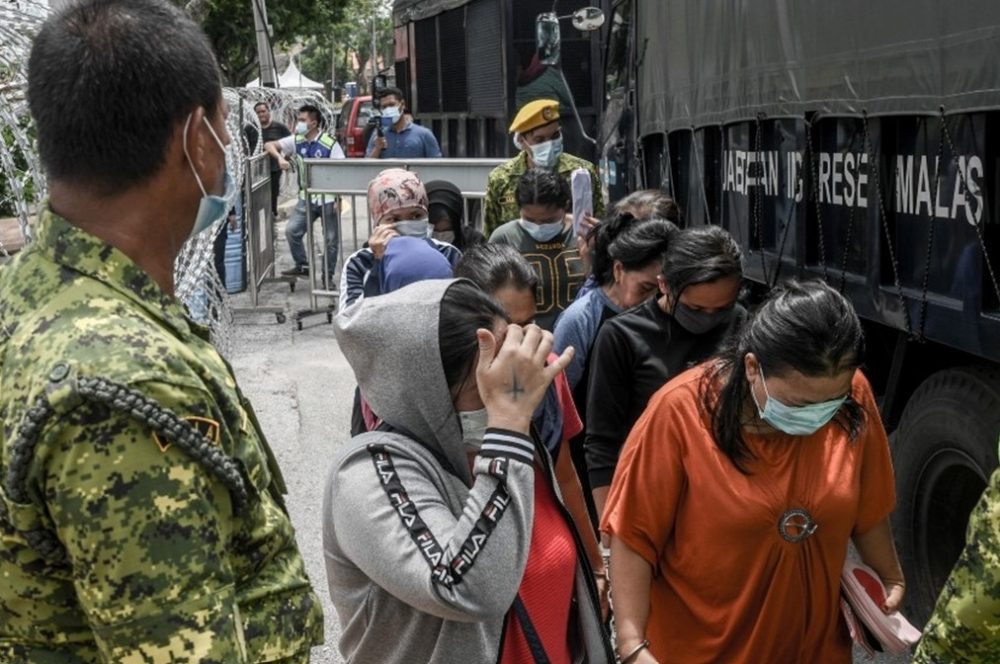"Anyone Can Die Anywhere And At Any Time" — Hamzah Downplays Deaths At Immigration Centres
The Home Minister also said that those who are detained should be regarded as criminals. "If we detain them, that means they have committed a crime."
149 Indonesians have died in five Sabah detention centres over 18 months between 2021 and 2022, according to a report on 25 June.
However, Home Minister Datuk Seri Hamzah Zainudin has downplayed the issue, saying that "anyone can die anywhere and at any time".
According to Hamzah, if he could predict who is going to die before they are placed in detention centres, it would make him "great", and that deaths in immigration depots in the country should not be an issue.
"Sometimes people die even while walking… They don’t even have to be in a depot," he said.
The Home Minister was attending an event in Putrajaya on Wednesday, 29 June when he was asked by reporters about the deaths in Sabah detention centres as recorded by the Malaysian Embassy in Jakarta.
"If we detain them, that means they have committed a crime. When someone has committed a crime, we are forced to follow the existing laws. If someone is detained and suddenly dies, whose fault is that? This is something unfortunate. Anyone can die anywhere and at any time," Hamzah was quoted as saying.
For the record, the immigration department is an agency under the Ministry of Home Affairs.
The report titled, Like in Hell, was released by the Indonesia-based Sovereign Migrant Workers Coalition. It detailed how immigration detainees were allegedly grossly mistreated with fatal consequences.
The group conducted interviews with deportees and concluded that all of the immigration detention centres in Sabah are deliberately neglecting sick detainees and not providing timely medical services to prevent detainees' illnesses from developing into severe and fatal consequences.
The report also alleged that the immigration detention centres in Sabah:
- Deliberately not referring sick detainees to a healthcare centre before their illnesses worsen to a more serious one,
- Deliberately not providing the necessary human resources, health facilities, and medicines.
According to the report, the high mortality rate experienced by migrant workers from Indonesia has clearly shown that the authorities in Sabah intentionally and continuously do not provide proper health standards and that the testimonies of deported migrants suggest that the death cases were actually preventable.
The report also stated that nearly all detainees are given no reason for their arrest and are treated as if they are all criminals and based on the principle of presumption of guilt.
And none of the detainees are given a fair trial, it alleged.
"None of the suspects was accompanied by a lawyer. They only need to admit their guilt and ask the judge for leniency [...] the judge will give a rattan cane sentence on the buttocks. The number of lashes differed from one detainee to another, some [once], [twice], some even six times," the report stated.
"Several detainees who could not stand the pain fell unconscious at the first lash. [According to] officers, they will usually be doused with water so that they are aware of continuing the second whipping. Many after the second lash could not stand and had to be supported to walk. We also found that many prisoners had to stay in prison longer than the judge's verdict."
The title of the report came from a female detainee
"There were two hells: one in the afterlife, the other in this world, at the temporary detention centres in Sabah," the report quotes her saying. She was deported in June this year.
The report also detailed children being born inside the detention centres with some even losing their parents. And a lack of blocks for children means they are all held in the adult's block.
"Children had to be held in adult detention blocks in poor conditions: crowded, noisy, damp, smelly neighbourhoods. Some never get any needed exposure to the sun. Babies under five years old only get two diapers per month. They also never receive the necessary food and milk for children. So many deported children suffer from malnutrition and various skin diseases," it said.

